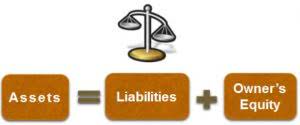What Is Bookkeeping? Bookkeeping Explained
Jibrel Network Is Bridging The Gap Between Crypto And Traditional Markets
October 8, 2021What is CIP Accounting And How to record CIP in Accounting
October 19, 2021Every business needs to have a reliable bookkeeping system that is based on accounting rules and principles. At the end of the accounting period, take the time to make adjustments to your entries. For How to Meet Your Bookkeeping Needs example, you may have estimated certain invoices that are later solidified with an actual number. When manually doing the bookkeeping, debits are found on the left side of the ledger, and credits are found on the right side. Debits and credits should always equal each other so that the books are in balance.
Bookkeeping for Dummies

Every transaction you make needs to be categorized when it’s entered in your books. This helps your bookkeeper catch more deductions, and will make your life easier if you get audited. You can teach yourself bookkeeping in different contribution margin ways (this guide gives you a solid start). Additionally, online courses (check Coursera and Udemy), workshops, and even free tutorials can equip you with the knowledge you need. You can also use bookkeeping softwares like QuickBooks, Xero, or FreshBooks to get hands-on experience.
How Do You Set Up Bookkeeping For A Small Business?
- One of the best things you can do to ensure your books balance properly is to follow the three golden bookkeeping rules.
- The cost of bookkeeping services varies depending on the provider and the features you need.
- If your business invests in the stock market, that is considered an investing activity.
- However, you don’t actually pay the fee until you’ve received the parts, in February.
- Small businesses often work with tax advisors to help prepare their tax returns, file them and make sure they’re taking advantage of small-business tax deductions.
As a business owner, it’s essential to understand the different financial terms that affect your company’s success. Two terms that often get used interchangeably are bookkeeping and accounting. While they might seem the same, there are significant differences between the two. Understanding the differences can help you determine which service you need and hire the right professional. Bookkeeping can be done manually, using pen and paper or a spreadsheet, or using specialized software designed for bookkeeping purposes. While manual bookkeeping can be time-consuming and prone to errors, it may be suitable for small businesses with relatively simple financial transactions.
- Even if you aren’t planning on growing any time soon, you need to have a sense of how much money is coming in versus what is going out.
- It may seem complex at first, but it ensures accuracy and shares insights into your financial health.
- Bookkeeping is one of the most important tasks that a business owner will delegate over the life of a business.
- The manual method can work if you prefer a hands-on approach, but it can also be time consuming, and it leaves more room for human error.
Bookkeeping Basics: How to Balance the Books
It is one of the methods you can use to determine the current worth of your inventory if you operate a retail business. This accounting method presumes that your most recent (last in) products will be the first to sell (first out). If your inventory costs fluctuate between the first and last items, this bookkeeping method helps keep the most accurate records possible. Single-entry bookkeeping is simpler — you only have to record each transaction once.

Wondering how best to collect and track financial information, deal with expense management, and ensure healthy cash flow for your business? Here are some of the most frequently asked questions on bookkeeping for small businesses. When you first begin the bookkeeping journey, collect everything you have that could be relevant to establishing https://www.bookstime.com/bookkeeping-services/hillsboro financial history. Despite the importance of accurate bookkeeping practices, most people don’t feel entirely confident with maintaining detailed business finances. Whether it’s a lack of interest or knowledge, many businesses outsource this process to a professional bookkeeper to ensure accurate and healthy finances all around. You should also browse the chart of accounts and make sure it’s organized in a way that makes sense for your business.
